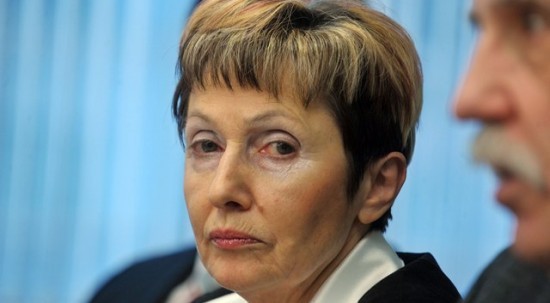Doctors Go on Day-Long Strike to Demand Better Working Conditions
Published on 28 may 2015The action has been labelled as blackmail by Health Minister Milojka Kolar Celarc.
The FIDES trade union of doctors demands that a new set of workplace norms be introduced giving doctors more time to attend to patients while also reducing the number of patients assigned to each general practitioner.
A draft set of norms was proposed by doctors as far back as in 2008 envisaging standard attendance time of 12 minutes (up from 7 minutes currently) per patient and a cap on the number of assigned patients to a general practitioner of 1,500, down from 2,200 on average currently.
More importantly, the doctors also demand that the average pay in the profession rise to three-fold the general average in Slovenia. This would mean a 40% rise on current salaries.
They have argued that the strike is needed because the ministry is ignoring their demands. But Kolar Celarc has rejected this as blackmail, arguing that her ministry has promised to put forward its proposals on norms by the summer.
The 2008 proposals are not a silver bullet for all the problems facing the profession, while doctors also seem to have lost sight of the fact that many things have changed since then, she has said.
In the run-up to the strike the two sides have mostly argued over who is to blame for a breakdown in communication, with each accusing the other of abandoning dialogue.
Kolar Celarc maintains that the strike is nothing short of a power play by the influential trade union, but the doctors claim the government has stopped listening to their warnings about problems in healthcare.
The minister also maintains - much to the dismay of FIDES - that the strike runs contrary to the law and will not be paid, since no collective bargaining agreements are being violated.
Most doctors in public healthcare will be on strike but they will have to abide by statutory limitations governing industrial action by doctors, meaning that they will have to attend to urgent cases and vulnerable groups as normal.
This will be the fourth major industrial action by doctors since 1996, when they first demanded higher pay with a general strike that saw them secure average pay of 2.5-fold the average wage in Slovenia.
Another general strike was held in 2002 over overtime pay, although doctors did not walk off the job but merely limited overtime work.
In 2010 doctors again went on strike over overtime pay, after parliament reduced overtime bonuses for the public sector as a whole. Instead of walking off the job, they withdrew consent to working past their regular hours.
A major strike was also in the works in 2008, before public sector reform by the then government provided doctors with a pay increase estimated at around 30%.
Source: SloveniaTimes


